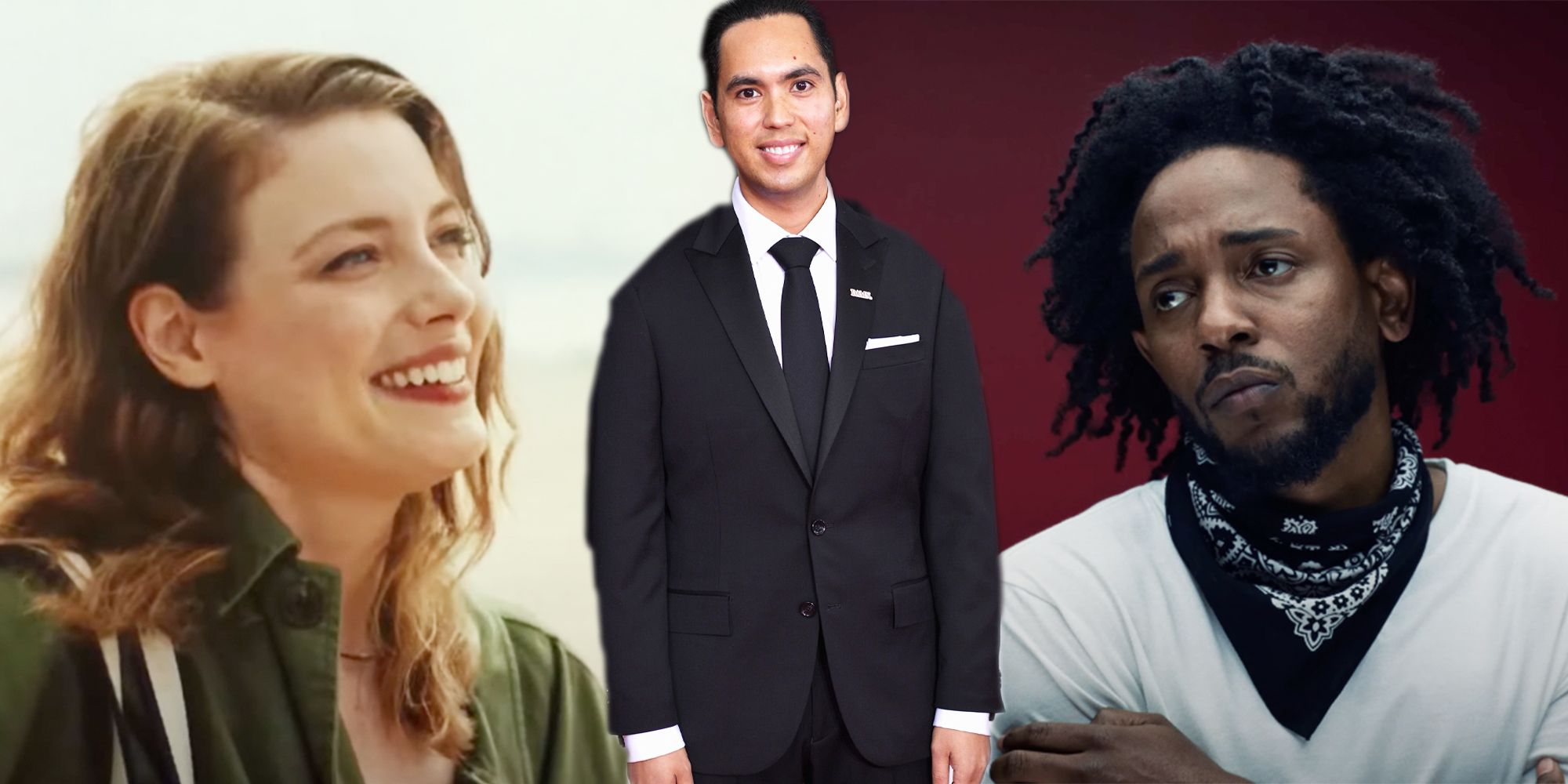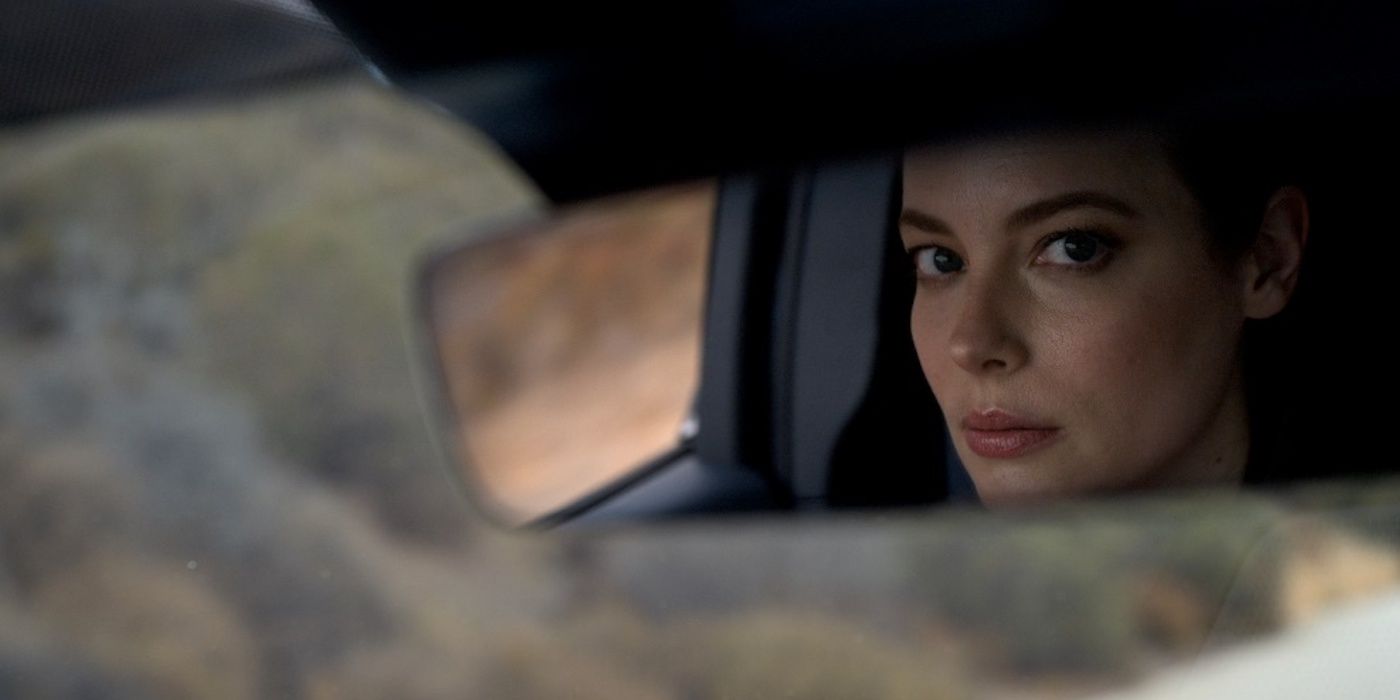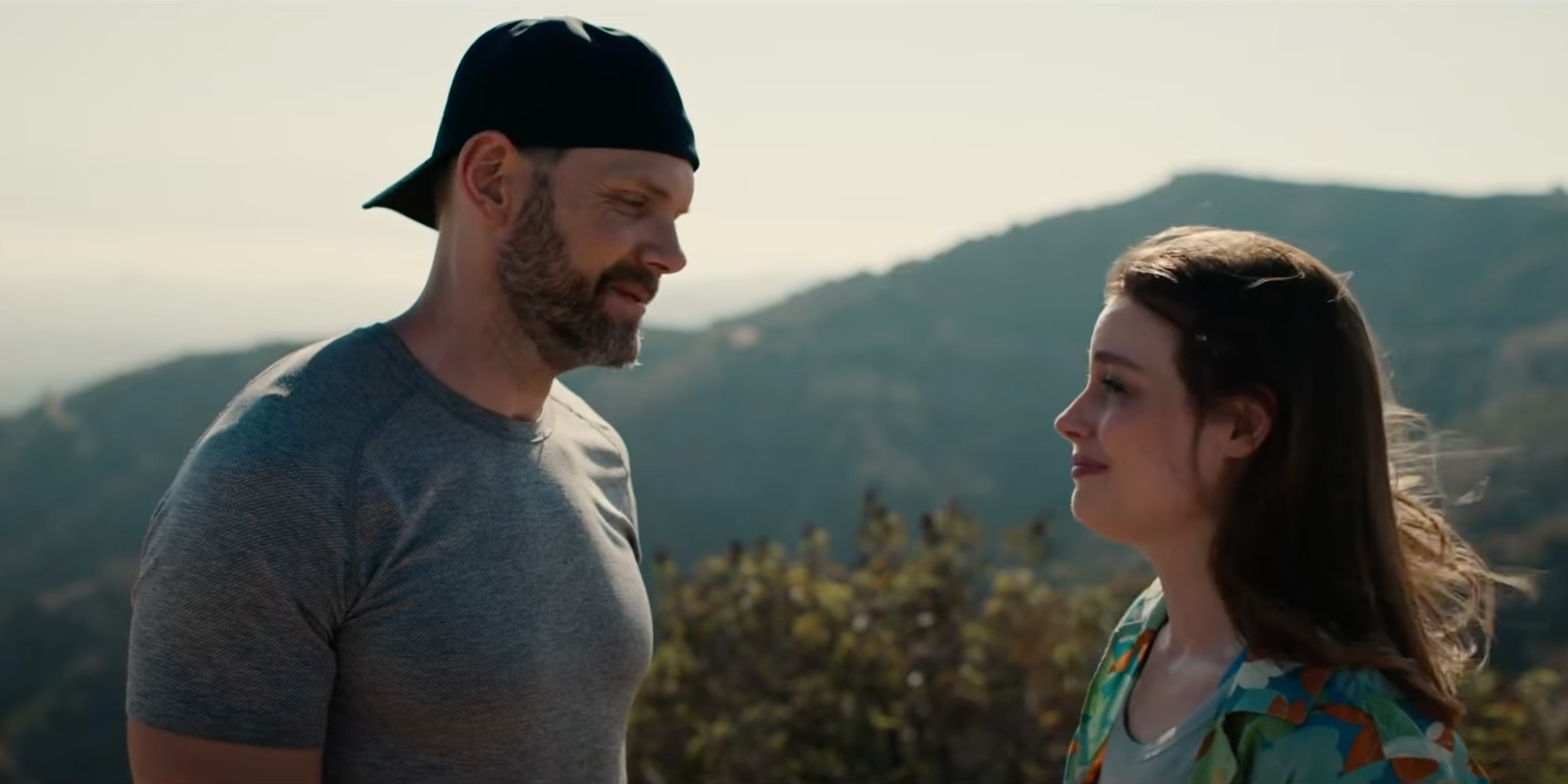From his work on promising indie films like The Seven Faces of Jane to music videos for Arcade Fire, Kendrick Lamar, and more, producer Jason Baum clearly has a finger on the pulse of pop culture and creative innovation. The Hawaiian-born producer has worked on a number of Emmy- and Grammy-award-winning projects, and netted his first Grammy win for his work on Kendrick Lamar's music video for "HUMBLE". Baum is in the running again in 2023, as he produced Lamar's "The Heart Part 5" music video, which will be competing against Adele's "Easy on Me", BTS' "Yet to Come", Doja Cat's "Woman", Harry Styles' "As It Was", and Taylor Swift's All Too Well - The Short Film.
Baum appears particularly drawn to projects designed to push their respective mediums forward. He produced two videos for Beyonce's The Lion King companion Black Is King and the augmented reality-enabled short film Remembering on Disney+, in addition to his other projects. The Seven Faces of Jane falls into a similar category, as it is a uniquely structured film led by eight different directors.
Jason Baum spoke with Screen Rant about his interest in film, finding new ways to tell stories, and his collaboration with Kendrick Lamar.
Jason Baum on The Seven Faces of Jane, "The Heart Part 5", and more
Screen Rant: You came up in music videos, and eventually branched out into working on films as well. Did you always know in the back of your mind that you wanted to work on movies?
Jason Baum: I think I always dreamed of more of a film career versus a music video career; it's such a weird niche that I found myself in. When I went to film school, it wasn't to work in music videos. It was to make features and long-form narrative work. I, kind of coincidentally, fell into music videos because some of my first internships during college and right outside of college were for music video production companies. That set me on this track of this niche music video industry within the music industry complex.
Is there something in particular that drew you to the films you've recently done: The Seven Faces of Jane and It's What's Inside?
Jason Baum: The way I approach most work that I take on, at least now [that] I have some choice in the matter, is, I try to do projects that I would want as an audience member. It's really important to me that it's something that you feel passionately about, because producing can be very stressful and invasive of your time. At the end of the day, you really have to be making something that you want out in the world, and it can't be something that you find silly or not worthwhile for yourself or anybody else. These projects are things I'm super passionate about.
The Seven Faces of Jane is such an interesting experiment in filmmaking. A lot of people might deem [it] non-commercial, but it is a very worthwhile experiment. It's cool to see Roman Coppola taking some chances, really pushing the medium of film, and giving voices to a lot of unknown talent for the most part. That was what interested me about The Seven Faces of Jane: to do a very out-of-the-box experiment and see how it goes. I think all the crew on the project embraced the experiment of it, and it was kind of a fun game at the end of the day.
It's What's Inside is a project that I've been developing with the director, Greg Jardin, for a really long time. Greg's a very dear friend of mine, and someone that I met while making music videos. We did a music video for this Canadian band called Hollerado that did pretty well; we won Best Music Video at South by Southwest, along with some other awards. Since that collaboration, we've been trying to make this film. Right now we're in post-production, and [we're] hoping to be able to hit the festival circuit by the end of the year, if not next.
You mentioned thinking outside the box. I know you also worked on the Disney+ short Remembering which seems to be augmented reality-compatible. Were you drawn to that because of the technological aspect?
Jason Baum: My gateway into filmmaking was through technology; as a kid, I just really loved the computer. When I was coming of age, it was a very exciting time of cameras and software being available to consumers, and [a] lowering [of] the entry level for so many technologies. Right before the start of the pandemic, I started working in the XR LED Volume space; I made a music video for The Mandalorian's theme song with Ludwig Göransson. That was my first exposure to the emerging work that they were doing on the show, and that set me off into meeting some people that led me to the Remembering project.
We shot Remembering all on an LED Volume, mostly without any kind of blue screen and green screen. What was exciting about it was what Disney was trying to do with pushing AR technology and storytelling, and I just wanted to learn about it myself. The film was very much a story that we were pushing to explore these technologies, and that was a really cool thing - to see what was on the cutting edge.
I'm a huge fan of Ludwig Göransson. I know you've worked with Donald Glover before; is that how you made that connection?
Jason Baum: It actually was slightly through that. Ludwig's claim to fame was being the composer of Community. We met on set for Clapping for the Wrong Reasons, which was the short film that Hiro Murai and Donald Glover made before making Atlanta. He was really kind of unknown at that point, although he had just produced the first EP for Haim. We kept in touch, and we'd see each other over the years of various things. I think Ludwig might have originally asked Hiro his thoughts of who might be able to make a music video for The Mandalorian, and for his first theme song, and that's how me and the director Isaac Ravishankara got involved in it.
Speaking of working with people who are killing it, how early did you get involved with "The Heart Part 5"? Were you there at the idea stage, or were things already in motion?
Jason Baum: It was a little solidified by the time I came on. They knew this was the first song for the album, and they knew the general idea of using deep fake technology for it. I think they were still very much developing what persons were going to be in part of the deep fake, and that's the point I came along. We were doing this video along with another video that I produced for them for "Count Me Out", so I was kind of working on both of them simultaneously.
Can you speak at all to why the people featured in the deep fakes were chosen for the video?
Jason Baum: I don't think I can really speak to it; it's really a conversation between Dave (Free) and Kendrick. There were a lot of different people that were in the running for the final cut. I think ultimately, we were limited by our time and money. I think if we had unlimited time and money, there would have been fifty people that would have ended up in there, but we had to be reasonable.
I think they also, as artists, wouldn't want to give a reason for sure. Kendrick is obviously a very intentional artist, and I think his lyrics have deeper meanings that we'll never ever be able to comprehend. A lot of that is what feeds their choices.
I also saw that Trey Parker and Matt Stone from South Park got special thanks for the video. Were they involved?
Jason Baum: They're involved in a company called Deep Voodoo, which did the deep fake for us. They were the intro to that company for us, so we thanked them for putting us together with them.
Were you there when they were shooting the video? Was it just one take of Kendrick doing the song, which then went to the deep fake company?
Jason Baum: Yeah, there's no trick there. It's one real take. I don't know how many takes we did, necessarily. I would say it was under ten, but probably at least five, and we were filming it among other things that day. But I was there; it was kind of magical. As [with] many artists of this caliber, the songs are kept very secretive.
Even someone like me that's heavily NDA'd and is used to being very secure with everything that I do - I didn't have the song. We'd been talking about the music video for a month or so. I still didn't even know the lyrics; I just knew the concept of what they were trying to make. I heard it at a very low volume on stage for the first time, and could barely hear it, and I already was moved. I was like, "This is a special song." I really had no idea, but I should have assumed, it being Kendrick, that it was going to be a good one.
Is that how things normally work on music videos?
Jason Baum: More and more, yeah. We go through some odd things to protect the song. This scenario was slightly more flexible because we were on a stage and heavily secure, but if we have background extras and things like that, [sometimes we'll use an] Earwig, which is used for all kinds of different things. In the music video context, sometimes we [give the artist] this little earpiece, [which is] very small, and the song is only played to them.
The problem is, the phone is too ubiquitous these days, and it's very easy to be sly with your recording. As much as trying to NDA everybody and make them understand it, we've also done Yondr. I'm not sure if you've experienced that; Yondr is something that they use at concerts or comedy shows to lock up your phone. We didn't do it for this particular shoot, but it's something that productions have been using to really keep things secret.
Finally, whether you're doing a music video or a film, what's the thing about your role as a producer that's most exciting to you?
Jason Baum: I think it's always the final product. Nothing's more exciting than people having reactions to what you make. Hopefully, they're always good reactions or the intended reaction. I, from time to time, look at a YouTube video and scroll through the comments and see what people are saying, because not always [do] you get the experience of being in a theater or having an audience reaction.
I always get tripped out when someone sends a video, or talks about a video, and doesn't even realize that I was a part of it. They say how much they love it in a very natural, non-prompted way. It's always most exciting when it's out, because getting to that point is always such a slog, in a way. Production is hard, and it's super frustrating 99% of the time. It's only enjoyable once you're over that final hop, and it's out in the world.
About The Seven Faces of Jane
The Seven Faces of Jane is a road trip movie unlike any other. Jane (Gillian Jacobs) escapes her mundane life in pursuit of romance, comedy, and tragedy alike, in a semi-improvised story told by eight different directors. The film's concept came from producer Roman Coppola, and features Gillian Jacobs, Alexandra Cassavetes, Ryan Heffington, Ken Jeong, Gia Coppola, Boma Illuma, Julian Acosta, and Alex Takacs sharing directorial credit.
The Seven Faces of Jane is available for streaming now on digital platforms.



